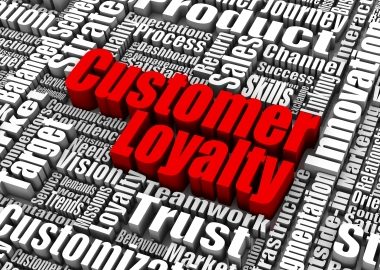What It Takes to Start a Business That Succeeds.
To start a business you have three choices. You can inherit/buy an existing business, purchase a franchise, or start your own business. I have presented to, and worked with, thousands of entrepreneurs, start-ups and small business owners over the years and I have developed a list of best practices to follow. These best practices to plan, launch and grow a business will help you to maximize the likelihood that you will be able to start a successful business. Need some historical perspective for inspiration? Check out this cool article:
“What is Entrepreneurship,” from…of all places, the U.S. GOVERNMENT!
*Combine Your Passions With Your Strengths: One way for you to ensure business start-up success is to find the things that you love to do and are most passionate about, that are also the things that you are most adept at/experienced in. You really can’t have one or the other you need to have BOTH, as starting a new business is such an all-encompassing venture. You have to do what you love AND be really, REALLY good at it! Set out to change the world. Dare to create something great.
Are you ready to be the next great entrepreneur? Check out this cool video from the Kauffman Foundation, on why you just might be.
Develop a Killer Business Plan: Your business plan will be used by you to chart a course for your progress in starting a business. It is your road map to plan your business. It has to be comprehensive and compelling, so you can share it with investors, Venture Capitalists, partners, suppliers, and vendors. Sections of a well developed business plan include:
Executive Summary (1-2 pages): Why did you choose this specific business, and why are you uniquely qualified to achieve success planning/launching this business.
*Business Description: What are the fundamentals of your business, namely the legal structure (more about legal structure options later on), the products sold and/or services provided, and your short and long-term goals.
*Operations: The operations section will address all of the logistical considerations it takes to plan and launch your business including how your source (procure) materials to make your products or deliver your services, the systems, processes, machinery, software it will take to run your day to day operations. You will also need to include details about your store location, IF you have a physical store presence (brick & mortar.)
*Marketing & Sales: You will need to develop a marketing plan including all of your online and offline marketing campaigns by month with associated costs for your first year of business operation. Be sure to cover the traditional 5P marketing mix of pricing, products, placement, packaging, and promotions with the 2Is (interactivity – how and how often you will interaction with your customers, and individualization (how much you will customize your communications to your specific customers. Check out free marketing research at the Marketing Research Roundtable.
Your marketing includes such tools as:
* Your blog and website, podcasts, videos
* Email marketing
* Direct mail
* Marketing collateral (flyers, brochures, presentations)
* Company branded merchandise
* Trade shows, events, annual conferences, bazaars, street fairs
* Networking events
* Advertising (Print, broadcast, online, out-of-home/outdoor)
* Broadcast advertising (TV, radio)
* Telemarketing
* Public relations
* Catalogs, circulars, directory listings, Yellow Pages
* Search engine marketing/search engine optimization
Your marketing campaigns must be targeted to your ideal customer (target segment) so you MUST create a comprehensive profile of your absolute ideal BEST customer. Your top 20% best customers generate 80% of your sales, buy 80% of your stuff (the Pareto Principle.) Develop employee welcome kits, appreciation/loyalty programs, refer-a-friend programs, and retention programs.
*Human Resources: Your management structure, organizational chart, key employee hires, your talent management/acquisition efforts including recruiting, hiring, on-boarding, talent retention through employee recognition programs, coaching/mentoring, professional development, promotions, job-sharing, standards for teamwork, job rotations cross-training, etc.you will need to have a basic understanding of labor practices and all applicable state and federal guidelines/laws pertaining to employees like OSHA, FMLA, ADA, etc. Develop a new hire orientation kit complete with employee manual, welcome letter from YOU, the President, the company vision, mission, and standards, plus policies, procedures and benefits.
*Financials: Include your personal income statement, statement of cash flows, balance sheet, and income statement.
*Financial Request Letter: How much money will you need? How will the money be used? How and when will the money be repaid?
Don’t be so fixated on your plan that you refuse to alter course or deviate from it. You want to be flexible enough to change course in order to take advantage of unique opportunities that present themselves to you.
*Create a World-Class Culture: Become a business that others will love to work for, partner with, buy from, all from DAY ONE. Create a vision and mission statement, write your declaration of values that your business will subscribe to. Perhaps there are causes that you want your organization to support. Call it social corporate responsibility if you must, but the deeper question to ask yourself even as you think through what your business will stand for is:
“WHEN ALL IS SAID AND DONE, WHAT DO I WANT TO LEAVE BEHIND?” Be specific yet bold. After all, you are writing your legacy! For motivation check out what Sir Richard Branson has to say in an interview he gave promoting his book: “Screw Business As Usual.”
“Social entrepreneurship is the work of social entrepreneurs. A social entrepreneur recognizes a social problem and uses entrepreneurial principles to organize, create and manage a venture to achieve social change (a social venture).” – Wikipedia.
How to write a GREAT vision statement.
How to write an AMAZING mission statement.
*Research…Research…Research: Conduct significant research into your industry/industries including competitive analysis of your direct competitors. Search relevant databases such as D&B, Hoovers, Census, your local library (Science & Information business Library/SIBL in NYC) know the applicable SIC (standard industrial classification) and NAICS (North American Industry Classification) codes that pertain to your specific industry. Here’s a really cool list of resources to gather industry research and conduct competitive analyses:
* IBIS World for industry-specific research
* Key business statistics
* Weddle’s Directory of Associations
* Occupational Outlook Handbook
* Industrial Reports: www.census.gov/manufacturing/cir/index.html
* E-commerce research
* Mintel Reports for industry-specific research
* NY Public Library Small Business Resource Center
* U.S. Census FactFinder (NY Demographic/geographic data)
* NYC Community District Profiles: www.nyc.gov/html/dcp/html/lucds/cdstart.shtml
* New Jersey State Library
* Moody’s
Hoover’s
* Gale Encyclopedia of Associations, Directory of Publications & Broadcast Media, Encyclopedia of Business Information Sources, Encyclopedia of Management and Small Business Management, consultant’s and consulting Organizations directory.
* Securities & Exchange Commission E.D.G.A.R database for quarterly & annual reports from publicly-traded companies
* Choose the Right Legal Structure: You have five (5) choices to select from for your legal structure:
* Sole proprietorship
* Partnership
* Limited Liability Corp. (LLC)
* C Corp.
* S Corp.
*Solicit Feedback How to Start a Business From the Experts: Talk to as many people as you can who resemble your target segment. Remember your ideal customer profile. Ask them as many questions as you can about their feelings towards your proposed product/service ideas, have they bought these products before, who have the bought them from, where did they buy them, how much would they be willing to pay for them, etc. Asking people most closely aligned to what you have to offer is called gathering primary research and it is absolutely critical to gaining a better understanding of your ideal customer and the potential demand for your offerings.
*Register Your Business: File your business with the state to obtain a doing business as certificate with a federal tax identification number. Register your business with Dun & Bradstreet (www.dnb.com) to obtain a 9-digit numeric D-U-N-S # (D&B Universal Numberings Service) number. It’s FREE (we business start-ups love free stuff) and gives you an extra level of professionalism.
*Talk to Potential Investors Early On: Talk to angel investors and venture capitalists to ask them what they think of your business idea. It’s an informal “pitch” to gauge the aggregate level of interest in/receptiveness towards your new business by people that assess new business ideas all the time. Ask them to be brutally honest (which they will) to solicit possible objections. Objections are food from the Gods as you can go back and address those through your planning so they are rectified before you ever have a need to actually pitch investors for start-up business funding.
*Take Classes. Lots of Classes: Register to take all of the courses you ca on entrepreneurship from accredited/respected organizations such as: WIBO, NYC Business Solutions Center, FastTrak at the SUNY Levin Institute, the continuing & Professional Studies program at your local college/University, business incubators, economic development centers, etc.
*Get Ready to Work Harder Than You Ever Have Before: No matter how hard you work by nature or regardless of how demanding your past jobs were, you will never work harder than when you begin the process of planning and starting a business. You will become an expert at time management, working off lists of To-Dos, delegating, prioritizing, and seeking help from others. Consider the option of hiring an administrative support services firm to take on all the administrative functions of your business to free up your invaluable time to focus on the key tasks of planning your business.
*Find Coaches & Mentors: Look for people in your personal and professional networks that you know and trust but who have experience in starting businesses themselves. Consider hiring a business coach (me) to help you. We all have “blind spots” – those areas where we lack experience in. A coach should come to you personally recommended, know you well, and serve many roles in working for you including BUT NOT LIMITED TO: Strategist, Mentor, Adviser, Supporter/Motivator, Task Master, Therapist, and Life Coach.
*Talk to Business Owners and Entrepreneurs: Ask as many people as you know who have started their own business what lessons learned they can share, what were the things they regretted doing, what do they wish they did differently, what things they are glad they did. What would they have done differently if they could go back in time. Don’t be afraid to pick their GREY MATTER. Learn from those that have already gone through the process.
*Surround Yourself With VERY Nurturing People: Starting a business is so stressful you need as much positive support as you can obtain. Lean on those people that have always been a positive force in your life for moral support. At the same time, it will pay you dividends if you distance yourself from those people (both friends and family) that are by nature negative people. At least until you get through the heavy lifting of doing your new business planning.
*Acquire Expertise in Social Media, Sales & Public Speaking: These are absolutely CRITICAL for business owner start-up success. Start the process of informally “interviewing” potential vendors, suppliers, distributors so you will have sourcing options to obtain the materials you need to make your products/sell your services, and have contacts in place to distribute/sell your products.
*Build Your Brand By Becoming a Subject Matter Expert: You must become known as a subject matter in your field/the industries you plan on competing in. Join all relevant industry trade associations, begin following the most influential industry bloggers, understand all of the industry’s most critical trends and developments.
*Get Published: In today’s world where the masses generate content, you’ll need to “join the party.” Start writing on the topics that matter most to your industry. Submit articles, white papers, case studies, research papers to the relevant editorial contacts in the media that follow/report on the industries you will be competing in.
For additional guidance on how to structure your business plan check out My Own business: “How to write a business plan or free business planning resources.”
Here’s to your business start-up success in the fourth quarter of 2012…and beyond!!

– Ethan
The Compassionate Biz Coach













